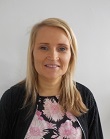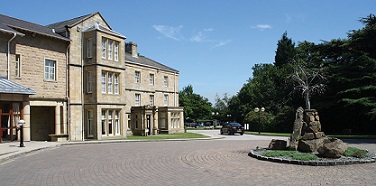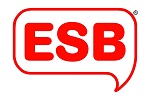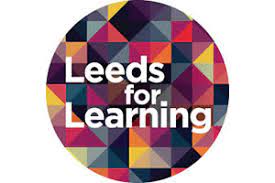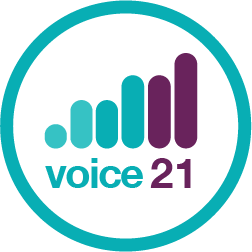
Leeds City Council Primary and Secondary Achievement For All Conference and Exhibition
Event Dates and Prices
Friday 23rd March 2018
8.00am – 3.30pm
![]()

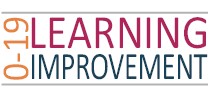
“Improving Disadvantaged Outcomes through Oracy”
Where you come from, how much money is in your household, what language you speak and any additional needs you may have has a significant impact on what you achieve at school, and therefore your life chances. This conference aims to support leaders and governors raise achievement for all and improve outcomes through the development of oracy.
We are pleased to welcome Professor Neil Mercer, from the University of Cambridge, as the keynote speaker. Neil is also the Director of Oracy Cambridge the Hughes Hall Centre for Effective Spoken Communication and has been key to advising national and international teachers, researchers and educational policy makers on improving communication and learning in the classroom.
The 2018 Primary and Secondary Achievement for All: Improving Outcomes through Oracy Conference will be a day of professional learning for school leaders and governors. The day will be full of innovative opportunities that will inspire, challenge current thinking and foster debate allowing school leaders to focus on the most effective strategies that have impacted on the achievement for all pupils across all phases.
All of this will take place amongst the excellent facilities of Weetwood Hall Hotel, and will be hosted by Leeds City Council School Improvement Team and regional leaders who have a proven track record of delivering high impact professional learning.
During the Conference, Mondale Events are delighted to present an exhibition, where a range of companies and organisations catering for both Primary and Secondary Education will be displaying their products and services. This event is likely to be very popular and companies wishing to exhibit are urged to book their space as soon as possible. Please view the list of those exhibitors already participating and contact us should wish to take advantage of this excellent opportunity to promote your product in this marketplace.
Weetwood Hall Hotel, Otley Road Leeds LS16 5PS
Delegates are requested to register using the register button to the left of this page.
Workshops will be allocated on a first come, first served basis and, in the event of a workshop being full, delegates will be asked to choose an alternative. The full day delegate cost for this conference is £210 for SLA schools and £240 for non-SLA schools which includes lunch and refreshments throughout the day.
Primary and secondary governors with the responsibility of Closing the Gap and Diminishing the difference are invited to attend until 12.00pm at a cost of £60 for all schools to hear the keynote speech and to attend workshop 1.
Schools will be invoiced directly from Leeds City Council following registration on this site.
Workshops
The following workshops will be running and can be selected on the booking form.
1A: Primary: Impact in Leeds primary schools to diminish the difference
Jackie Reid, School Improvement Adviser and the Leeds East Primary Partnership
Jackie Reid will share and discuss the compelling evidence for a focus on Oracy to raise standards across the curriculum. This will be followed by a presentation by head teachers from schools in the Leeds East Primary Partnership (White Laith, Beechwood, Cross Gates, Seacroft Grange and Grange Farm) who will describe how they successfully developed a whole school approach to Oracy across the trust which has had a positive impact on outcomes for pupils. The speech and language group from these schools have demonstrated the power of collaborative working to effect real change in practices and they will share a range of successful processes and strategies which they have developed. The session will conclude with the launch of a language strategy for Leeds where the Learning Improvement team will share a menu of resources, training and bespoke support which will be on offer to Leeds schools.
1B: Secondary: Impact in Leeds secondary schools to diminish the difference
Sarah Atkinson and Erica Hiorns, School Improvement Advisers
Erica Hiorns and Sarah Atkinson will share and discuss the compelling evidence for a focus on oracy to raise standards across the curriculum. This will be followed by a presentation by secondary senior leaders from schools in Leeds who have successfully implemented approaches to diminish the difference. Corpus Christi Catholic College will present on the strategies from last year’s conference that improved outcomes for disadvantaged pupils and Cardinal Heenan will outline successful strategies that have created an equal Progress 8 score for disadvantaged and others in English this year. The session will conclude with the launch of a language strategy for Leeds where the Learning Improvement team will share a menu of resources, training and bespoke support which will be on offer to Leeds schools.
2A: Talk for Learning in the Classroom: Primary and Secondary. KS1-4
Lyn Dawes, Oracy Cambridge at Hughes Hall, University of Cambridge
Children talking about their work in class are learning how to put to use a powerful medium of communication. Talking with one another allows children to question, elaborate, and reflect on a range of ideas. Classroom talk can be motivating and involving, and helps children to think and learn. Based on a theoretical approach underpinned by classroom research, this workshop will suggest how to teach children effective talk skills which help them to think and learn.
2B: Communication Friendly Schools: Primary and Secondary. KS1-4
Anne McCaffrey, Speech & Language Therapist
Evidence shows that excellent communication practices in the classroom impact positively on all children’s learning, language and social and emotional development not only those with Speech Language and Communication Needs.
This workshop will cover:
1. Why communication friendly schools and classrooms are beneficial for all children including those with identified SLCN and those from disadvantaged backgrounds
2. How the whole school ethos underpins the effectiveness of excellent communication practices associated with a communication friendly approach
3. Key features of communication friendly classrooms in Primary and Secondary schools
4. Top tips for making small changes towards becoming “communication friendly” in your setting
2C: The art of public speaking that enables social mobility. Closing the gap through debating. KS2, KS3, KS4
Eliot Pallot, English Speaking Union
This session will explore the benefits of closing the attainment gap through debating. It will be an interactive session demonstrating practical classroom activities that can be used either as part of a dedicated debate club or in a variety of subject lessons to raise students’ speaking skills and consequently their ability to answer exam questions precisely and effectively. The creation of an encouraging environment where everyone is motivated to reason and justify their point of view will be a key focus of the session. Enhanced understanding of key concepts through discussion and reasoning will be promoted as an effective method of engaging pupils in their learning.
2D: Challenging the 30 million word gap: supporting vulnerable learners to be capable speakers in the early years. EY
Sarah Cernis, Early Years’ Consultant
Language is the means by which children communicate their needs, develop friendships and relationships, experience concepts and explore ideas. Successful use of language is integral to a child’s life chances and closely linked to their well-being and behaviour. The well documented 30 million word gap (Hart and Risley), gives educators a harsh reminder of the difference in the number of words that the most affluent and the most disadvantaged children will hear before they start school.
This workshop will explore the successful strategies used by early years’ educators to compensate for this early language deprivation and to accelerate language development in nursery and reception classes.
3A: A whole school strategy to promoting Oracy. KS3, KS4
David Cooper, Co-Head Teacher and Debbie Goddard Deputy Head Teacher, Batley Girls’ High School
Following on from their highly successful contribution at the LLP Senior leader briefing, David and Debbie are sharing their whole school approach to developing Oracy. The school has excellent rates of progress for their disadvantaged cohorts and in this session, are going to share the many successful strategies used to strengthen Oracy across the school. These include: Discover your voice; Dialogue for Learning and Impact and the Teacher Toolkit pilot on verbal ‘v’ written feedback to name but a few. These are all underpinned by the whole school appraisal targets around Literacy, reading, communication and dialogue.
3B: Developing writing through talk. KS1, KS2
Steve Dawson, Learning Improvement Consultant
The ability to tell a story arises out of building up and drawing upon bank of well-known tales. This is why the best writers in a class are always avid readers – they are drawing on the narrative storehouse. For those children who lack this storehouse of ‘literary templates’, hearing, learning and reciting – through focused talk – is key to getting these children to progress as writers from the Early Years onwards. All teachers know that ‘if you can’t say it, you can’t write it!’
This workshop will look at strategies that involve talking a text, supporting pupil talk and how this can support writers at every point in the process.
3C: A Whole School Approach to Talk. KS1, KS2
Sacha Nelson, Assistant Headteacher, Parkwood Primary School
The workshop will explore embedding talk into planning from EYFS to Year 6, effective use of language structures in lessons, talk as an integral part of the new National Curriculum, classroom environments that support Talk and evaluating and sustaining talk across school.
3D: Approaches, systems and strategies to support the development of communication for children and young people with Autism. EY, KS1, KS2
Tim Gleave and Mandi Marchant, Specialist Training in Autism and Raising Standards (STARS) team
This workshop aims to demonstrate a range of approaches, systems and strategies that can be used in settings and schools from Early Years to the end of Key Stage 2 in supporting and enhancing communication and interaction skills. We aim to show the value of approaches like: Intensive Interaction; Visual Communication and Visual Support in enhancing the child’s independence, confidence, engagement, and ability to express views, perceptions and feelings.
Event Speakers
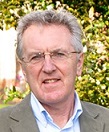
A. Professor Neil Mercer
Professor Neil Mercer is Emeritus Professor of Education at the University of Cambridge, where he is also the Director of Oracy Cambridge: the Hughes Hall Centre for Effective Spoken Communication and a Life Fellow of the college Hughes Hall. He is a psychologist with particular interests in the development of children’s spoken language and reasoning abilities, and the role of teachers in that development. He has worked extensively and internationally with teachers, researchers and educational policy makers on improving communication and learning in the classroom. His books include Words and Minds: how we use language to think together, Exploring Talk in School, Dialogue and the Development of Children’s Thinking and Interthinking: putting talk to work.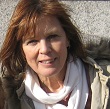
B. Dr Lyn Dawes
Dr Lyn Dawes taught in secondary and primary schools, specialising in science and English, before working as Education Officer for BECTA, as Senior Lecturer in Education at De Montfort University Bedford and the University of Northampton, and as Visiting Lecturer at the University of Cambridge. Her most recent Key Stage 2 books are The Essential Speaking and Listening: Talk for Learning and Talking Points: discussion activities for the primary classroom; for Key Stage 3, Talking Points for Shakespeare Plays; and for Key Stage 1, Talk Box - all published by Routledge. She is now a member of the centre Oracy Cambridge at Hughes Hall, University of Cambridge and regularly provides professional development workshops for teachers on oracy and talk for learning.
C. Anne McCaffrey
Anne graduated from Leeds Polytechnic in 1982 with a BSc in Speech Therapy. She also gained a Post Graduate Certificate in Education (PGCE) General Primary/Early Years from Oxford Polytechnic in 1991. In 2009 she completed a MEd in Bilingualism in Education. Anne has worked as a speech and language therapist in the UK and in New Zealand. She has worked in a variety of settings including clinics, mainstream schools, SILC (specialist inclusive learning centre) provision, and language resourced primary schools. Anne is also a trained teacher and worked for several years as a teacher in a school in Bradford. Anne works in mainstream schools in Leeds. She brings a wealth of knowledge and experience to her work with school staff to develop children’s communication and interaction skills. As part of her work she has developed a specialism in working with children learning English as an additional language. Anne has been involved in delivering training to school staff for several years. She delivers the following courses: • Universal Communication Workshops • Speech Sounds Workshop • Supporting Children with English as an Additional Language and Language Impairment (0-11) • Introduction to Selective Mutism • Level 3 Award: Supporting Children and Young People’s Speech, Language and Communication Registered with Royal College of Speech and Language Therapists (RCSLT) Health and Care Professions Council (HCPC)
D. Eliot Pallot
Eliot works as a Discover Your Voice Officer for the English-Speaking Union. He has spent the last five years involved in organising debating clubs and activities for students of all ages in primary and secondary education.